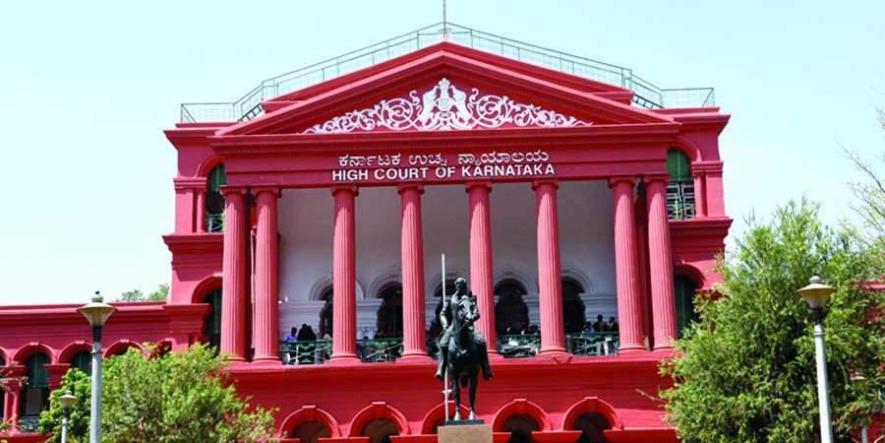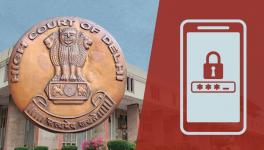Information About Accused Cannot be Leaked to Any Third Party: Karnataka HC

In an important judgment, the Karnataka High Court has held that any detail or data pertaining to an alleged accused cannot be leaked to any third party during the course of investigation by an Investigating Officer (IO), without the court’s permission.
If in any case, the IO is found guilty of this, he/she will be proceeded against for dereliction of duty or any such delinquency. An important ratio upheld by the court is that the privacy of an accused is the sole responsibility of the investigating officer.
“The responsibility of safeguarding the information or data which could impinge on the privacy of the person will always be that of the investigating officer, if the same is found to have been furnished to any third party,” said the court.
Justice Suraj Govindaraj was hearing a petition filed by an accused in the sandalwood drug case, who challenged the order passed by the Special NDPS Court which directed him to cooperate for unlocking his mobile phone and accessing his email account, seized by the police as illegal and abuse of process of law.
He argued before the Single-judge Bench that insisting him to unlock his mobile phone which contains his personal information is violative of Right to Privacy as held by the Supreme Court in the case of Justice K S Puttaswamy.
The petitioner’s counsel also pointed out that there was no specific law that enables the police to impinge on his privacy or “for a direction to be given by any court, either to give a password of his mobile or to unlock the same and further to use the data contained in his mobile for the purpose of investigation.”
Directions to access accused’s data
The court laid down several steps to be followed by the agency if the accused refuses to furnish passwords and biometrics for investigation purposes. First and most importantly, the court has held that the prosecution has to approach the Court to seek a ‘search warrant’ to search the smartphone and or the e-mail account. Once a search warrant is issued, it is up to the accused to provide the password, passcode etc.
Further, the investigating agency could also serve a notice on the accused if he/she is not furnishing the said password, passcode, biometrics etc. The court said that an “adverse inference” would be drawn against the accused as regards the aspects notified in the said notice. The accused can then, in order to avoid the adverse inference being drawn, furnish the password, passcode or biometrics to the authorities.
An application can also be filed by the prosecution to the court that could direct the service provider, manufacturer of smartphone and/or e-mail service provider, to open or unlock the smartphone and/or email account to enable access to the said smartphone and/or email account.
If the manufacturer and the service provider is not facilitating the access of the smartphone, email account or computer equipment, the Court on an application being filed in that regard, can permit the investigating officer to hack the smartphone and/or email account. The investigating agency can engage the services of such hackers as may be required, which would be akin to breaking open a lock or door of the premises when the accused were to refuse to cooperate with the investigating officer.
If the trick of hacking into the smartphone and/or the email account fails and during the course of such a procedure, if the data on the smartphone and or the e-mail account is being destroyed, the investigating agency/prosecution is allowed to rely upon the notice by which the accused was warned of adverse inference being drawn.
Justice Suraj Govindaraj accordingly, set aside the trial court’s order which asked the accused to furnish the password while directing him to cooperate with the investigation. The Single-judge Bench said that the investigating officer will have to seek a search warrant as per the above procedure to examine the smartphones/email accounts.
Privacy concerns
The court observed that today’s technology has become “all-pervasive” where a telephone which was used in the past for communication and now called a landline has given way to sophisticated instruments like smartphones that have become the central device for running the affairs of the person.
In the given instance the court held that it “cannot per se issue any directions to the accused to furnish the password, passcode or Biometrics and direction to cooperate. The gathering of information and/or evidence mode and methodology of investigation is in the ex-facie domain of the Investigation officer.”
“Once the investigating agency has access to an electronic equipment more particularly smartphones and/or laptops the investigating officer has a free access to all data not only on the said equipment but also any cloud service that may be connected to the said equipment, which could include personal details, financial transactions, privileged communications and the like,” said the court.
The court opined that the rules which are applicable to physical document where a particular document could be classified as a privileged communication or strictly private and confidential cannot apply to data which is stored on a smartphone or any other electronic equipment since “once an investigating officer has an access to the said smartphone, electronic equipment or email account he would have complete access to the data.”
Although such data may not be incriminatory, the court observed that it may be very private to the person and could eventually incriminate the said person in any particular offence. But, “the use of such data during the course of investigating would not amount to violation of the Right to Privacy and would come within the exceptions carved out in the Justice Puttaswamy’s case. However, the disclosure making public or otherwise in court proceedings would have to be determined by the concerned judge by passing a judicial order”, held the High Court.
Further, the court also held that providing the password, passcode or biometrics, does not amount to an oral statement or a written statement made by the accused and “therefore it cannot be said to be testimonial compulsion”.
The court held, “A direction to provide a password, passcode, biometrics would not amount to testimonial compulsion. It is only in the nature of a direction to produce a document. Mere providing access to a smartphone or e-mail account would not amount to self-incrimination since it is for the investigating agency to prove its allegation by cogent material evidence.”
The judgment may be read here
Courtesy: Sabrang India
Get the latest reports & analysis with people's perspective on Protests, movements & deep analytical videos, discussions of the current affairs in your Telegram app. Subscribe to NewsClick's Telegram channel & get Real-Time updates on stories, as they get published on our website.
























